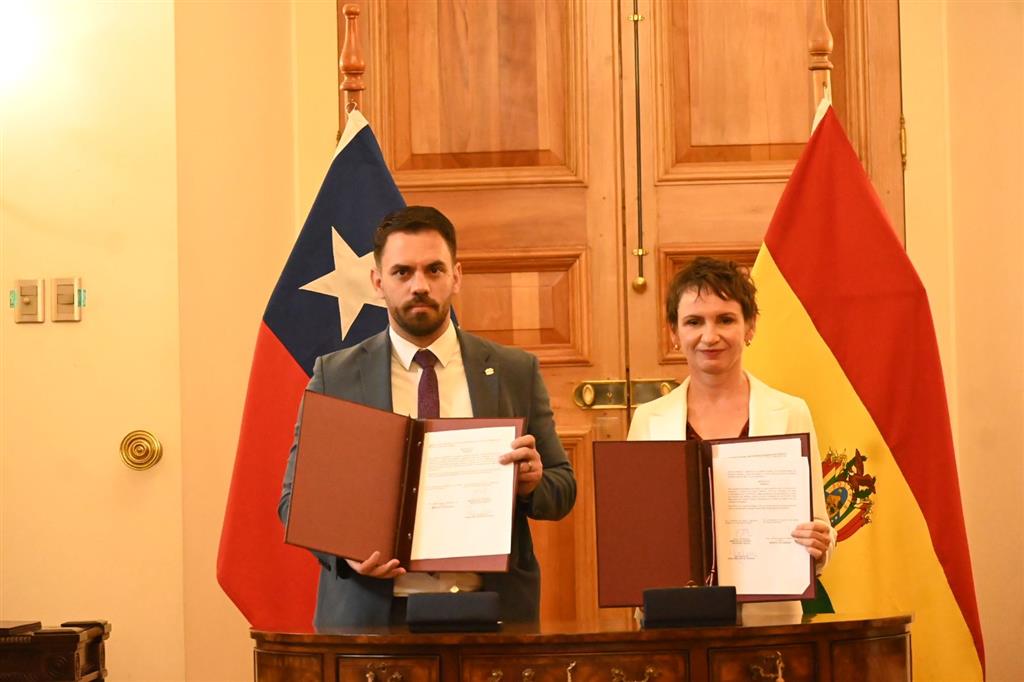The first agreement establishes a procedure for the repatriation of migrants who are nationals of both countries or of a third country and who are identified when they enter illegally within 10 kilometres of the border.
It also stipulates that repatriated foreigners must have a record of regular entry into the territory to be returned.
Chile and Bolivia have also agreed that residents of border areas will be allowed to travel to an adjacent town in the neighbouring country and stay there for a maximum of three days.
To this end, they will be issued with a Border Neighbourhood Transit Card, which will be implemented gradually, starting with the municipality of Colchane in Chile and the municipality of Sabaya in Bolivia.
A third agreement provides for the strengthening of coordination measures to prevent and investigate smuggling.
This will include the exchange of information and the conduct of joint operations at authorised and unauthorised border crossings.
Chile described the signing of the agreements as a milestone that will strengthen cooperation in border control, the fight against smuggling and the regulation of neighbouring transit.
Meanwhile, Bolivian Prime Minister Eduardo del Castillo said that working together was the best way to bring benefits to both peoples.
The two countries have not had diplomatic relations since 1978, due to Bolivia’s centuries-old claim to an outlet to the sea, and bilateral relations remain at consular level.
mh/arc/car










